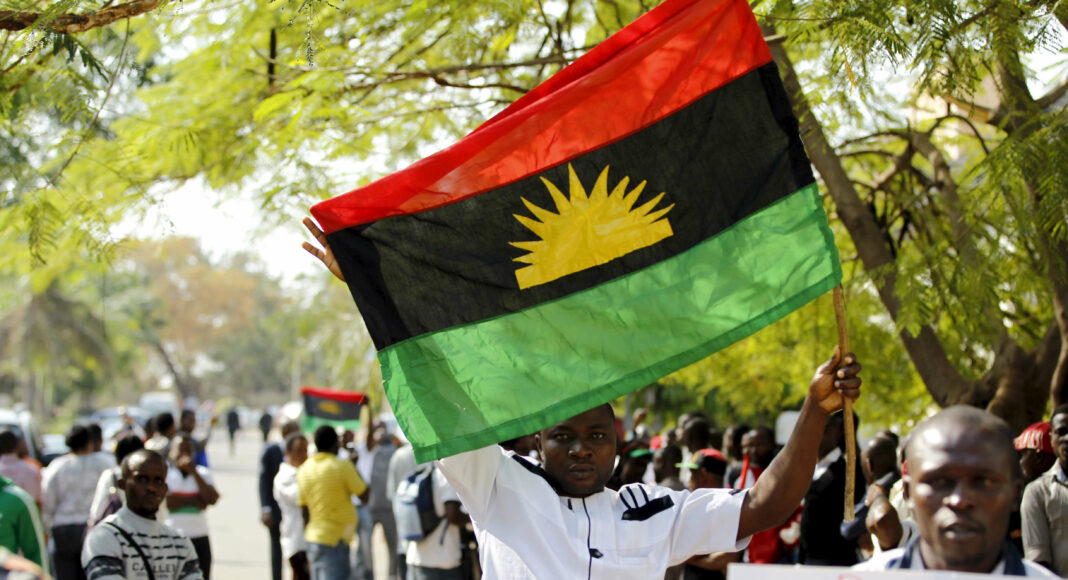By Pelumi Salako
Nigeria is dealing with a lot right now: a surge in banditry, rampaging terrorist groups ISWAP and Boko Haram, farmer-herder conflict across the country’s hinterlands, and growing calls for secession across the south by a section of the Yorubas and the Igbos, or Biafrans, whose agitation for self-autonomy is built on generational repression.
In response to this growing violence, on June 5th, 2021, the Federal Government of Nigeria suspended Twitter indefinitely throughout the country. The measure was taken in response to the media company taking down a tweet of President Muhammadu Buhari for flouting its policy of engagement. The tweet threatened to deal with young people “in a language they understand,” following a series of attacks by “unknown gunmen” in the southeast during the week surrounding Biafra Remembrance Day. President Buhari upped the ante on June 29th when authorities arrested separatist leader Nnamdi Kanu, who had been exiled in Israel and later the U.K., prior to his arrest and extradition back into the country from an undisclosed location.
Governments around the world have condemned the president’s attack on free speech, but the former military ruler hasn’t budged from his position. Social media platforms where Nigerians assemble to exchange opinions on national issues have become dangerously colored with fear, alarm of terror and lamentations of economic distress.
People are tired, and, yet, they are tightly gripped by the “one Nigeria” policy that binds the country together. Secession appears even more complicated than staying together, given the fragmented nature of Nigeria’s ethnic composition.
Many Nigerians believe the best hope for changing the country’s dire direction is the 2023 general elections, when President Buhari will head for the exit after two calamitous terms. Though they’re not likely to solve problems for good, the forthcoming vote might determine if the country will remain or break up. The new leader will be forced to confront growing youth unrest, labor agitations, dire economic straits, and the capture of local areas by non-state actors. Whichever way you choose to see it, 2023 is a critical point.
But perhaps even more important than the election itself is the choice of presidential candidates by the main parties, PDP and APC. According to analysts and experts, given the violence and growing calls for separatism, a candidate from the southeast is the most likely to introduce some calm to the country, while victory for a candidate of northern and western origins might portend yet more trouble for the country. Unfortunately, there are few real contenders for the presidency from the southeast, forecasting difficulties ahead.
Insecurity woes
Nigeria’s growing insecurity will likely be a key priority of the general elections. Violence in the country is often blamed on political forces, as evidenced by the commonly-cited quote attributed to Nigeria’s erstwhile dictator Sani Abacha, “if an insurgency lasts for more than 24 hours, the government knows about it.”
On May 20th, HumAngle reported that Abubakar Shekau blew himself up in order to evade arrest by ISWAP, a terrorist group formed by separatist Boko Haram fighters. The death of Shekau, the man who has led Boko Haram’s insurgency for a decade, has opened the possibility for more trouble on the Nigerian counter-insurgency front.
ISWAP has been described by Crisis Group as more tactical and strategic, and the death of Shekau, a man who has been erroneously declared dead at least four times by the Nigerian Army, might signal an ISWAP takeover, or at least more recruitment of Boko Haram fighters into their ranks.
“If the other terrorist group [ISWAP] is appearing to be dominant, high on morale and have a stronger sense of direction, this means that those in Boko Haram are likely going to take that shift,” explained political analyst Isa Sanni. “This gives ISWAP the upper hand in the power tussle,” he said.
Murtala Abdullahi, a researcher and security reporter with HumAngle who has been covering insecurity in northern Nigeria for two years, pointed out that ISWAP has been the dominant terror group in the northeast and Lake Chad basin for a while. “The death of Shekau and the expansion of the ISWAP could amplify the threat posed by the group to civilians, humanitarian actors and security forces,” he asserted.
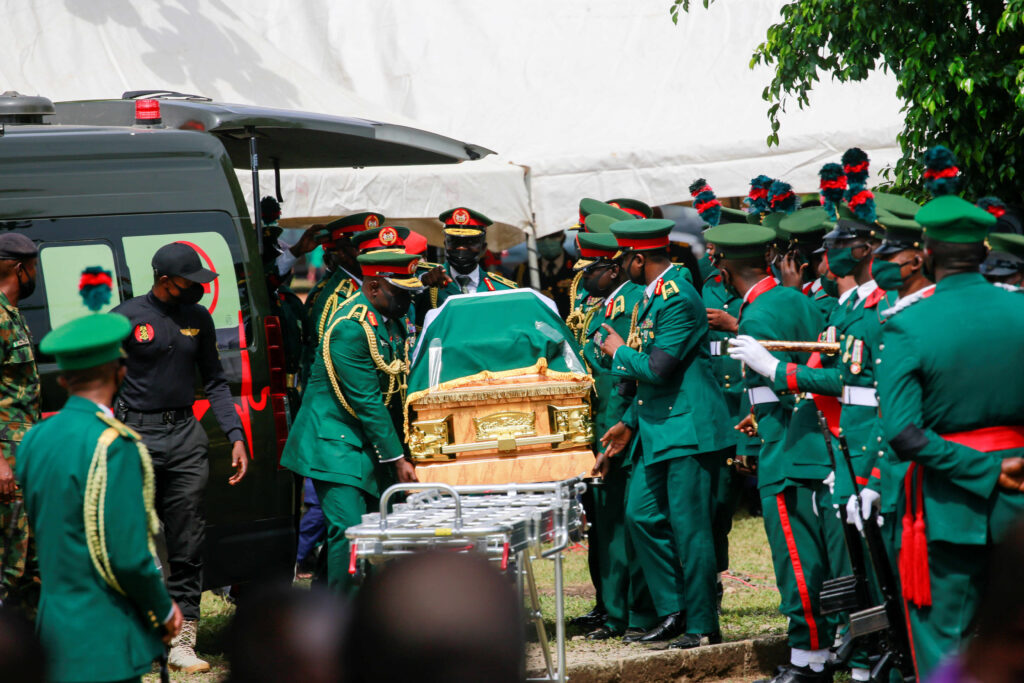
The day after Shekau’s reported death, Nigeria’s Chief of Army Staff, Lt. Gen Ibrahim Attahiru, died in a plane crash alongside other senior military officers. Even though Nigeria has a history of losing its top military brass to plane crashes, the news came as a shock, especially to the soldiers in the fields. The president has come under criticism for not attending the COAS’s funeral like his predecessor, Goodluck Jonathan, had.
“It is a disaster that the president did not show up at the funeral of the Chief of Army Staff, especially because he is a former military man and he understands how these things work. When the one who leads the army is dead, you expect that his soldiers will be down on motivation. The presence of the president would have served as a reassurance to the troops,” Sanni said.
The farmer-herder conflict, said to be six times deadlier than Boko Haram’s insurgency, will certainly factor into the electoral period and can even throw the sentiments of the people against the ruling party. Deji Salako, a security consultant based in Kwara State, believes that if the government is able to curtail the excesses of open grazing by implementing ranching, they can swing more votes in favor of the ruling party because it will put an end to the clashes, there will be a significant reduction in crime, and it will create an aura of improved security.
Ranching may be a positive long-term solution, but actually implementing it will be tricky due to the political and ethnic ties involved. “Now, presently, it is political suicide for any southerner to approve state-backed ranching or support open grazing. It is also problematic for any northern politician to insist upon private ranching or ban open-grazing,” explained Dele Paago, a historian and political analyst.
Records show that INEC, Nigeria’s electoral umpire, has always been susceptible to various forms of attack and interceptions during the electioneering process and the present status of insecurity only signals that the ridicule of electoral disruption continues. Paago explained that attacks on the logistical chain of the INEC, Nigeria’s electoral umpire, could derail the 2023 elections.
Political forces
According to Paago, there are four political forces at play in the country. “The first is the conservatives, which are backed by mostly Northern politicians and strangely represented by the APC, and then followed by the federalist PDP—the populist bandwagon of restructuring and decentralization. There is the secessionist agenda in the southeast and now increasingly in the southwest, making the third ideology. The fourth is the jihadists.”
Each of these political forces will, directly or otherwise, play participatory roles in the elections, even though two are not organized political parties in Nigeria. The secessionists are interested in separating from the country, while the jihadists are focused on capturing power, however, there are chances of compromise, at least by some of the factions, if there is a favorable negotiation from the political players. The two major parties, APC and PDP, will work with the smaller parties, as usual, with the agreement of concessions to them.
So far, Bola Tinubu, appears to be the among the most tipped to run for the office, but there are a handful of others positioning to run for president. Some of the most commonly-cited names are Nasir el-Rufai, Rochas Okorochas, Nysom Wike, Rotimi Amaechi, Orji Uzor Kalu, Atiku Abubakar, Kingsley Moghalu, Peter Obi, Aminu Tambuwal, and Bukola Saraki.
During the last elections, Atiku contested for president under PDP but lost to Muhammadu Buhari. Paago told Sahelien.com that Atiku’s chances, despite having been a candidate in the last elections, is little. “I think Atiku’s shot is gone. In 2019, he could claim the north still had one term on the basis of rotation. In 2023, that argument for the presidency falls flat. It’s difficult to see why political strategists in PDP would field him as their candidate. If they go with Atiku, they’ve shot themselves in the leg before the race.”
Atiku is not the only one who is at odds with the rotational policies. The bulk of those positioning to contest are from the northern region and nearly all have checkered pasts and presents, as in the case of Nasir el-Rufai, governor of Kaduna State (though it’s not clear whether a bad or violent reputation has actually harmed a Nigerian politician’s chances of success).
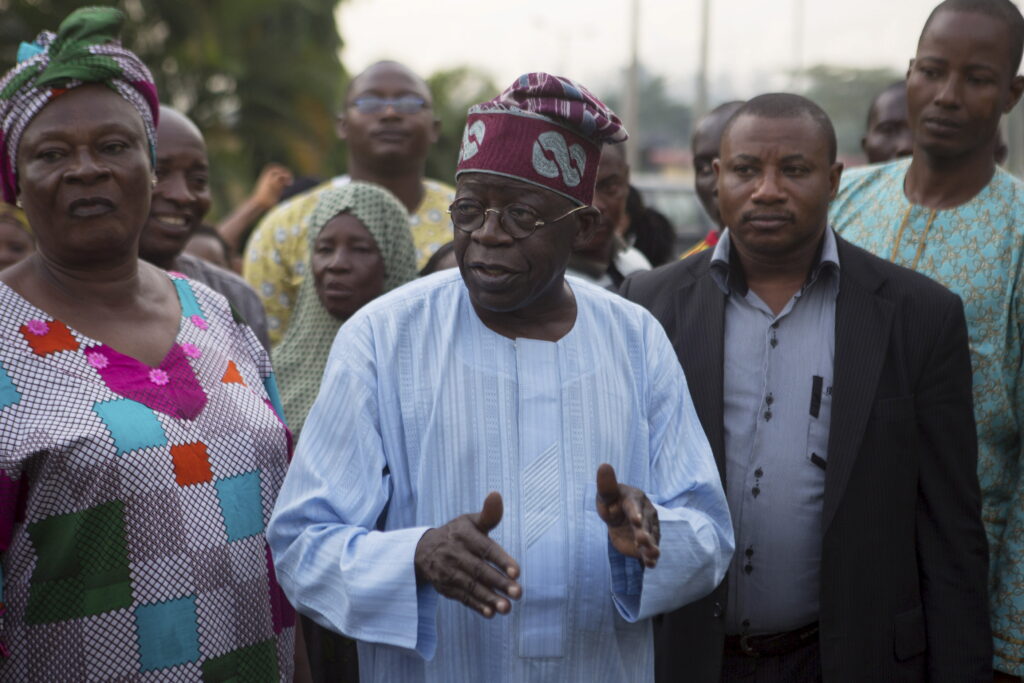
A candidate from the southeast?
“Let me begin by saying that Tinubu’s candidacy is logical,” Paago said, arguing that Tinubu has the wind in his sails owing to his popularity, strong political relevance in the west, a large political credit in the north, and the possibility that he can raise the eastern support through Igbo consigns in Lagos state.
But Tinubu is not liked by many, and a major trouble awaiting him and the other leading potential candidates is in geopolitical zoning and its complications. “They cannot seize the moral high ground from the Igbos who, one of the three major tribes, have only led the affairs of this country only in the six-month long regime of Ironsi,” Paago explained.
“To deny them 2023 is to undermine the ‘One Nigeria’ project,” he said, referring to the Igbo community. “On the basis of vote, Tinubu is a solid choice for APC, but he might as well find himself president like Gorbachev, presiding over the dissolution of the state he inherited,” he added.
Tension that the candidates from the southeastern states can get sidetracked continues to rise by day and this could lead to more unrest there, especially if the main candidates for president are from the north. The main Igbo candidates do not appear to have a strong enough footing to win a major party’s nomination.
Deji believes that just as the APC overturned the incumbent Goodluck Jonathan’s PDP administration, a shrewd PDP can take power in 2023. A late surprise could also be on the cards. Tinubu is notably unpredictable and may keep his cards concealed till the last minute, by riding the wave of his potential candidacy and throwing his weight behind one of the candidates in the final stages.
Historically, elections in Nigeria are coated with distrust and it will be no different this time around. The choice of the southwest’s de facto godfather, Tinubu, will be the conservative’s strategy to woo the southwest. The insecurity and separatist agenda in the southeast might be cited as a reason to deploy military forces in the region which would be a Machiavellian move for voter suppression there
Paago said that whatever the merit of the case, northern votes will always go to the conservatives and southern votes will seek federalism. “History repeats, but it does not clone itself. It will work if it’s about getting votes but the resultant illegitimacy will only exacerbate the clash of civilization and push secessionist tendencies forward,” he said.
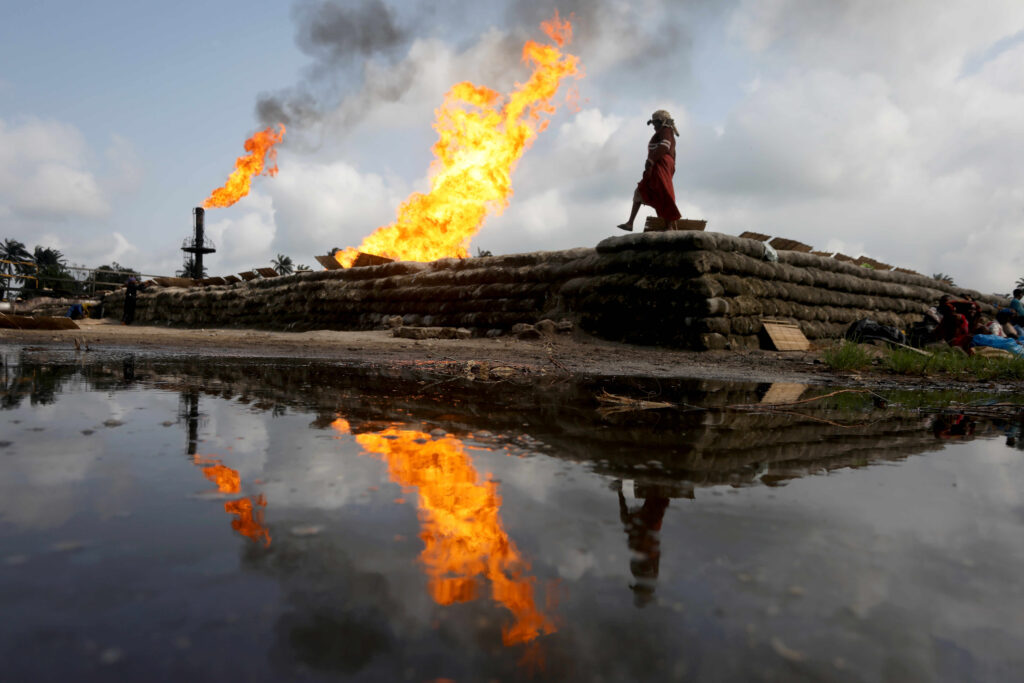
Crashing oil market
Economic distress is adding another unpredictable factor to the mix. In April 2020, the oil and gas industry witnessed a monumental decline, with oil prices falling below $0 a barrel. Current trends show that oil prices may never hit the high marks again.
The fall in oil prices provoked austerity measures in the national and state budgets. Coronavirus lockdowns aggravated the situation. For a nation like Nigeria that has come to be heavily dependent on oil, you cannot really separate the industry from the polity.
Renewable energy is gaining ground every day. Many countries are opening their borders to these fresh, exciting possibilities, but Nigeria and other African countries are lagging behind due to rigid government policies, which are usually motivated by private interests.
Dele Paago believes that Nigeria’s slow pace into the renewable world is political. “To start with, oil prices are significant for revenue, revenue is significant for the conservative coalition because of its security apparatus through which it maintains legitimacy.”
Like elsewhere, the long fingers of imperialism are involved in Nigeria’s economic decline. Paago explained that the lag in adopting renewable energy is partially because the foreign oil companies lobby their own governments to press the Nigerian state to honor the licenses they have been given for 20 to 30 years down the line, rather than going for more clean alternatives with lower initial profit margins.
Attack on free speech
President Buhari’s Twitter suspension has led some Nigerians to worry that the measure is a prelude to full-blown dictatorship, and that he might decide to stay in power beyond the end of his term in 2023.
Even though internet users have been able to bypass the curb using VPN, business ventures and individuals who depend on the app for work have taken the biggest blow. In the first three days, the struggling Nigerian economy lost N7.5 billion.
Tracy-Allen Ezechukwu, a social media manager and content creator, told Sahelien.com that the indefinite suspension is affecting her in a myriad of ways. She explained that her work covers the security and privacy of her clients but the use of VPN exposes the clients to security breaches.
“Most of these VPNs require you to pay a subscription fee to access the full benefits and not a lot of people can afford that. Some of them require your data, and, in times of high internet insecurity, we risk getting blackmailed or worse, robbed,” she said.
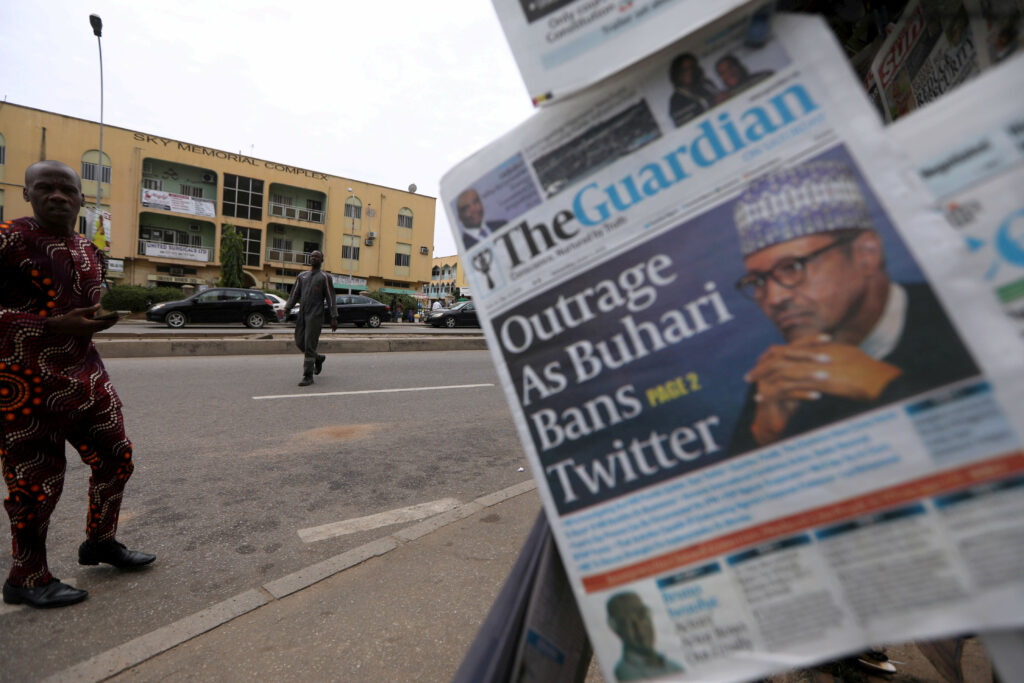
Aside from the already stated risks, Tracy-Allen laments that the policy costs her effectiveness and efficiency. She continued by saying she can’t continue to use a VPN by default because she is constantly moving from one tab to another and those contain important info about businesses and people.
A breadwinner, Tracy-Allen said the imposition is affecting her life and the ricochet extends to her family. “I can’t sell my services because I cannot be a social media manager if there is no social media to manage. My clients are on these platforms, and if I am having difficulties reaching out to them, that invariably means I will face great difficulties doing their work. You can’t trust my advice when I live in a country that does not allow me to prove myself, ” she said.
Funsho Orimoloye, a digital security expert based in the US pointed out that the government’s sluggishness to tackle national issues like unemployment, insecurity and inflation but motivation to fast track a ban on a platform that gives voice to citizens is an ‘impulsive egoistic abuse of power.’
With the government criminalizing the use of Twitter and the National Broadcasting commission ordering radio stations and TV channels to stop using twitter, it is clear that the attack on free speech is full blown. Meanwhile, multiple members of government have been seen tweeting, some recognisably through the use of VPN. Presently, activists and citizens alike are creating awareness for a protest to be held on June 12, Nigeria’s storied Democracy day.
“It is so tragic that one can predict with accuracy that bandits will strike, while the Nigerian president will be shocked by the killings. A Twitter ban is not just an attack on the fundamental human rights of expression, it is a precursor to a more deliberate and systematic dehumanization and oppression of the people, especially the youths,” Funsho concluded.
The uncertainty of 2023 may make or mar the country. There is growing distrust between the government and the people, and a jolt in the form of unwanted electoral outcomes might burst open the poorly held tension.

